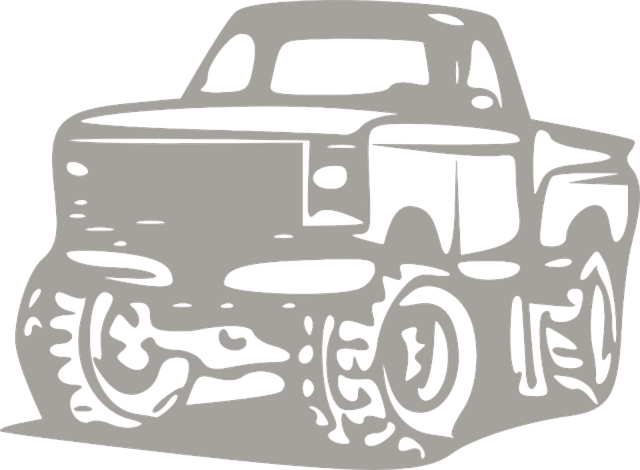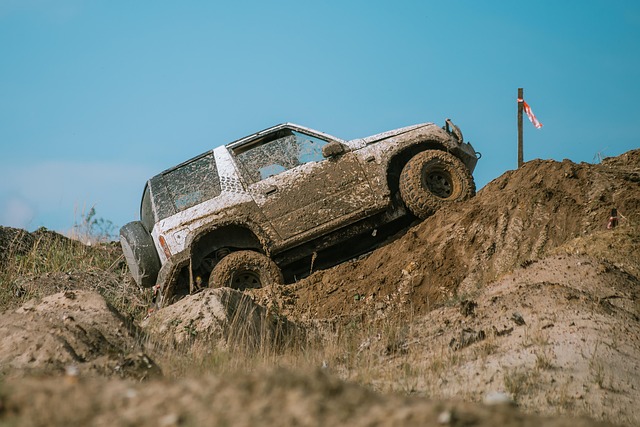Brownsville overlanders rely on robust tow hooks for navigating challenging terrain and unexpected breakdowns. When planning an adventure, selecting appropriate Class I, II, or III hooks is key, with each catering to distinct towing requirements. Proper equipping, regular maintenance, and following safety guidelines ensure a secure and successful overlanding experience in Brownsville's diverse conditions. Incorporating tow hooks enhances stability and capabilities for exploring the region's raw beauty confidently.
“Tow hooks, a seemingly simple accessory, are essential for overlanders seeking adventures beyond the ordinary. This comprehensive guide delves into the world of tow hooks, equipping you with knowledge for safe and efficient towing. From understanding their purpose in overlanding to choosing the right type for your vehicle, we explore installation, safety, practical uses, and maintenance tips. Discover how these versatile tools enhance your Brownsville Overlanding experience, ensuring a seamless journey filled with unforgettable memories.”
- Understanding Tow Hooks: Essential Equipment for Overlanding
- Types of Tow Hooks: Choosing the Right Fit for Your Vehicle
- Installation and Safety Guidelines: Ensuring Secure Hitching
- Practical Applications: When and How to Use Tow Hooks
- Maintenance and Care: Extending the Lifespan of Your Tow Hook
- Brownsville Overlanding Adventure: Planning with Tow Hooks in Mind
Understanding Tow Hooks: Essential Equipment for Overlanding

Tow hooks are essential equipment for overlanders, especially those planning Brownsville overlanding adventures. These sturdy metal devices serve as a crucial connection point between your vehicle and any trailer or recovery equipment you might need to tow or recover during off-road excursions. Whether you’re navigating challenging terrain or facing unexpected breakdowns, tow hooks provide the necessary security and stability, allowing you to confidently traverse diverse landscapes.
For Brownsville overlanding, where varied and often demanding conditions await, having reliable tow hooks is paramount. They enable you to attach and secure a wide range of accessories, such as recovery slings, winches, or even temporary shelters, expanding your off-road capabilities. Understanding the importance of these hooks during your planning phase can significantly enhance your overlanding experience, ensuring you’re prepared for any eventuality that lies ahead.
Types of Tow Hooks: Choosing the Right Fit for Your Vehicle

When it comes to towing, choosing the right tow hooks is essential for a seamless Brownsville Overlanding planning experience. There are several types available, each designed to cater to specific towing needs and vehicle types. The most common categories include class I, II, and III hooks, with each class offering varying capacities and mounting styles. Class I hooks, for instance, are suitable for lighter vehicles and feature a standard receiver tube mount. Ideal for everyday towing tasks like hauling trailers or boats, these hooks provide a solid connection but may not be as versatile as later classes.
For more demanding situations, such as off-road adventures or heavy-duty towing, class II and III tow hooks come into play. These advanced models often include additional features like quick-release mechanisms, allowing for faster hook detachment. Class II hooks are versatile and can handle moderate to heavy towing, while class III hooks are designed for extreme capacities, typically used for large commercial vehicles or specialized overlanding setups. When planning your Brownsville Overlanding trip, considering these options ensures you’re prepared for any towing challenge that lies ahead.
Installation and Safety Guidelines: Ensuring Secure Hitching

When planning your Brownsville overlanding adventure, proper installation and safety guidelines for tow hooks are essential. Before hitting the road, ensure that your vehicle is equipped with sturdy and correctly fitted tow hooks designed to handle the weight and force encountered during off-road travel. Follow these steps for a secure hitching process: First, thoroughly clean and inspect both your vehicle’s receiver hitch and the tow hook itself. Ensure they are free from debris or damage. Then, align the tow hook with the receiver and insert it firmly into place, engaging the locking mechanism. Double-check that all connections are tight and secured, especially during off-road conditions where extreme forces may be applied.
Safety should always be a top priority when towing. Regularly inspect your tow hooks for any signs of wear or damage before each trip. Utilize wheel chocks and other security measures to prevent the trailer from detaching in case of sudden stops or turns. Additionally, familiarize yourself with local overlanding regulations and guidelines specific to Brownsville’s unique terrain and conditions, ensuring a safe and enjoyable off-road experience.
Practical Applications: When and How to Use Tow Hooks

In the realm of Brownsville Overlanding Planning, tow hooks play a crucial role in ensuring safe and secure towing of vehicles or trailers. These robust metal devices are designed to handle heavy loads and provide a reliable connection between your vehicle and the item you’re towing. They are particularly useful when navigating challenging terrains, as they offer increased stability and control.
When using tow hooks for overlanding trips, it’s essential to understand their practical applications. For instance, consider employing them when towing a heavily-loaded trailer across uneven terrain or when assisting a disabled vehicle. Proper usage involves ensuring the hook is securely attached to both vehicles, with the chains or cables properly tensioned for optimal safety. Always refer to your vehicle’s manual for specific guidelines on tow hook capacity and installation procedures.
Maintenance and Care: Extending the Lifespan of Your Tow Hook

Proper maintenance and care are essential aspects of Brownsville overlanding planning, especially when it comes to your tow hook. Regular cleaning and inspection are key to extending its lifespan. Remove any built-up dirt, salt, or debris from the hook and its mounting points using a wire brush or degreaser to prevent corrosion. Check for signs of wear or damage, such as cracks, pitting, or bending, and address these issues promptly.
Consider applying a protective coating or sealant to safeguard against rust and environmental elements. Store your tow hook in a dry, secure location when not in use. By implementing these simple care practices, you can ensure your tow hook remains reliable and sturdy, allowing for countless adventures ahead during your Brownsville overlanding journey.
Brownsville Overlanding Adventure: Planning with Tow Hooks in Mind

When planning a Brownsville overlanding adventure, incorporating tow hooks into your strategy can significantly enhance your experience. Tow hooks are essential for securing and stabilizing your vehicle during off-road excursions, allowing you to navigate challenging terrains with confidence. For instance, envision yourself exploring the diverse landscapes near Brownsville, from dusty desert trails to rugged mountain passes. Having robust tow hooks installed in your overlanding rig ensures that you’re prepared for any unexpected obstacles or steep inclines.
By considering these attachments early in the planning process, you can optimize your vehicle’s capabilities and design your route accordingly. Whether you’re a seasoned overlander or just starting, understanding how tow hooks complement your overall Brownsville overlanding planning is crucial. This ensures a smoother journey, offering both peace of mind and the freedom to embrace the raw beauty that awaits beyond city limits.
Tow hooks are indispensable for overlanders, offering a secure connection for towing and hauling. By understanding their types, proper installation, and practical applications, you can enhance your Brownsville Overlanding planning and ensure safe adventures. Regular maintenance is key to extending the lifespan of these essential components, ensuring they remain reliable through countless journeys. Equip yourself with knowledge and the right tow hooks to conquer any overlanding challenge.
